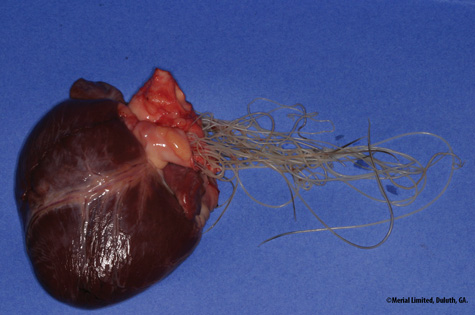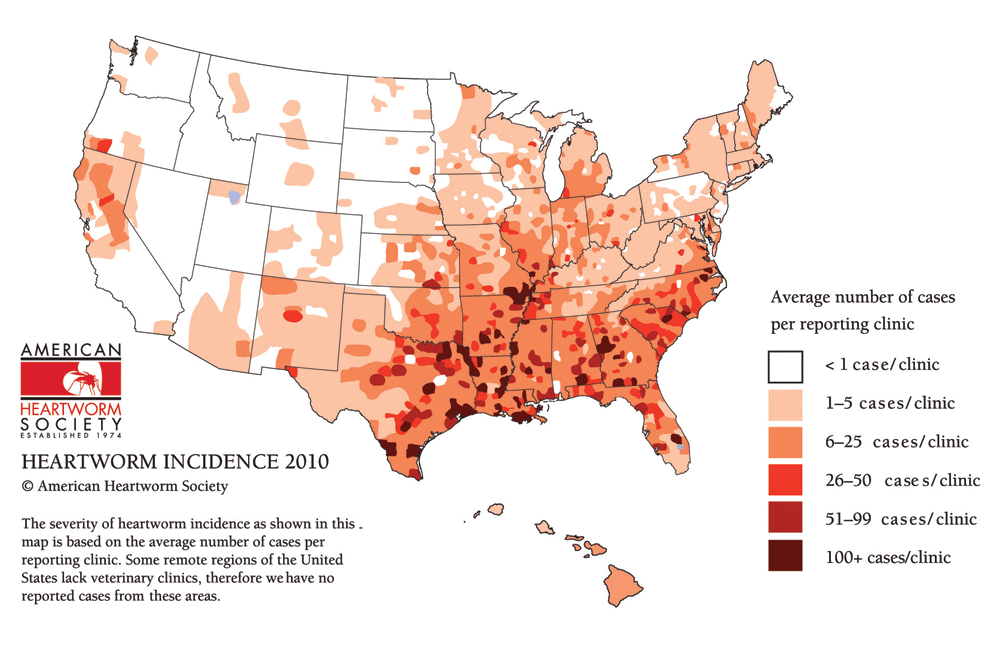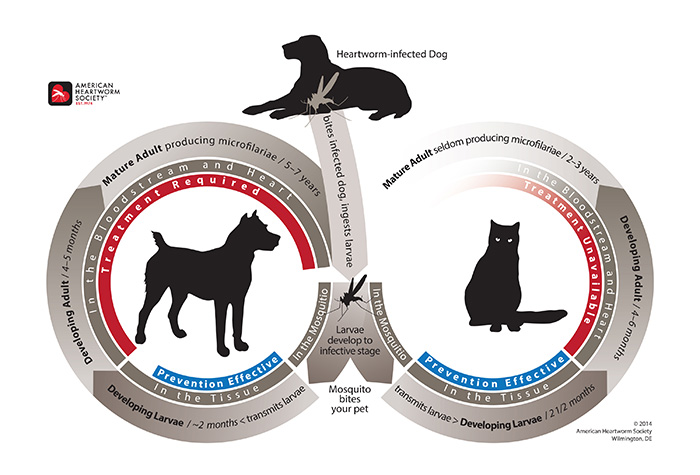FAQ:
Heartworms

"What are heartworms?"
Heartworms are a deadly blood-borne parasite spread by mosquitoes. They infect susceptible mammals including dogs, cats, wolves, foxes, ferrets, and (rarely) humans. They are found in the arteries of the lungs and right side of the heart.
It is recommended by our veterinarians, and the American Heartworm Society, that preventative is given year round. Missouri weather is variable and most heartworm preventatives also help with intestinal parasites - which can be infective year round.

